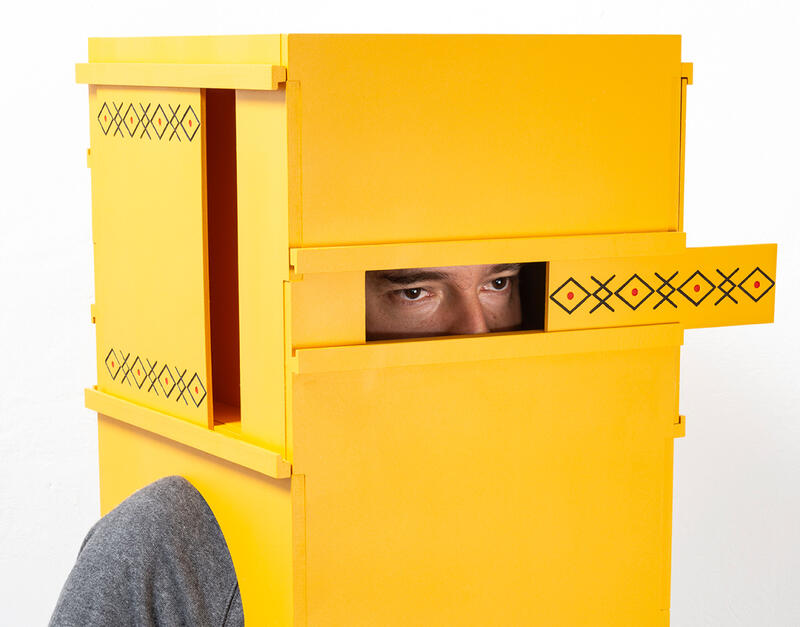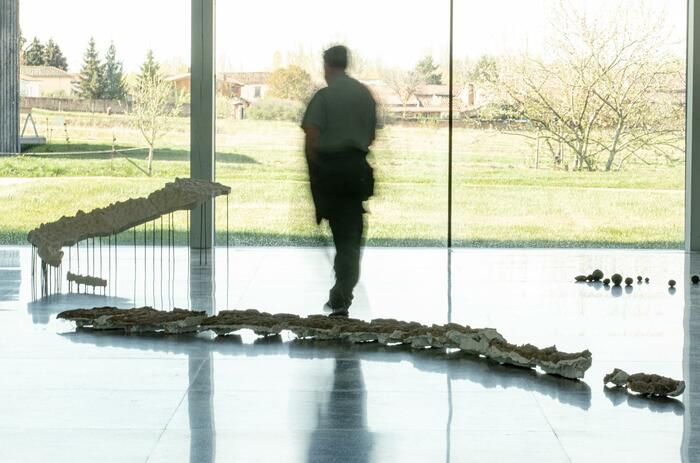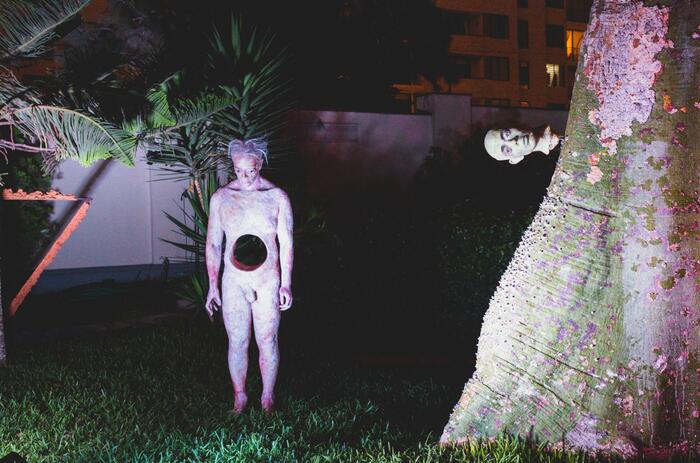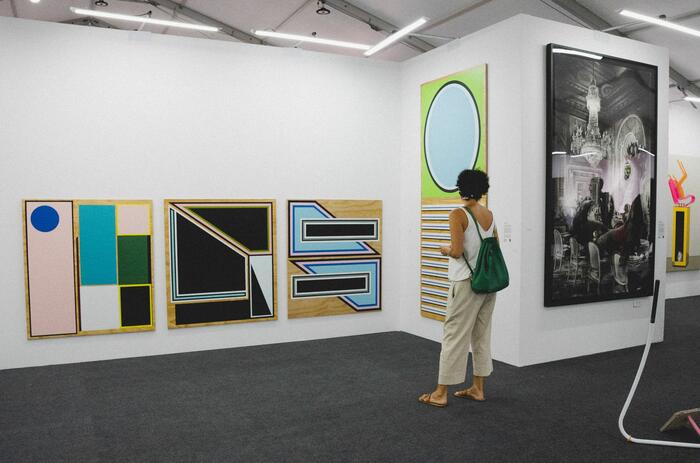THE ARBITRARY CREATING THE NECESSARY
Mateo Lopez (b. 1978), a Colombian artist with an outstanding career, has his first solo exhibition in Lima. Pasado futurista (Futuristic Past) is the title of his exhibition, curated by Maria Wills and Julien Petit, and comes with the Miguel Urrutia Museum in Bogota's seal.

The situation that the exhibition generates at MAC in Barranco is that of a veritable crossroads of visual paths, some recognizably artistic-historical, others not, but all relaunched into the future: the visitor walks into a room with the air of an ethnographic museum that contains not objects but designs, in which we see prototypes of devices for an intelligent and hedonistic culture of the future. What is powerful is that in the most prominent designs, the artist cultivates and articulates a kinship with the material culture of the original ethnic groups of the Amazon. There is in the works exhibited a playful freshness not exempt from an ironic accent that seriously dismantles any confusion with the exotic. The contours of a 'collection' of complex objects emerge; of an alternative materiality that has Amazonian roots; that welcomes decorative patterns, of cult or not, functional or not; and in which several cultural layers of the non-Western seem to find a place. The fascinating thing about Mateo López's attitude is that in Pasado futurista, everything is in an open trajectory, and nothing is finished and closed. Everything is in rotation. Everything points to the beginning of a cycle.
The body is the measure of everything, and witness of a part of it. There is a ritual attire in the mold of a felt suit by Beuys. And that disassembled on the stage, is it a Lygia Clarke 'bug'? Several sculptural pieces are partially seen through the filter of the reference to the brightly colored, flat, cut-out wallpapers of Henri Matisse's last period. Something suggests to the eye a relationship to a mask by Marcel Janco for Cabaret Voltaire, and much of what is presented echoes costumes and props from Schlemmer's triadic ballet, with a backdrop of linear profiles and fragments of Eisenstein's set designs for Meyerhold. A set of ten delicate, scaled-down stage models is deployed in graphic visualizations without depth, to show a spatial context for the sense of representation and ornament.
-
Vistas de la exhibición. Cortesía MAC.
-
Vistas de la exhibición. Cortesía MAC.
-
Vistas de la exhibición. Cortesía MAC.
-
Vistas de la exhibición. Cortesía MAC.
-
Vistas de la exhibición. Cortesía MAC.
-
Vistas de la exhibición. Cortesía MAC.
-
Vistas de la exhibición. Cortesía MAC.
-
Vistas de la exhibición. Cortesía MAC.
-
Vistas de la exhibición. Cortesía MAC.
The video-dance pieces he presents under the title Cuerpos desobedientes (Disobedient Bodies, 2020), have been made in collaboration with Ana María Perdomo Contreras, Lobadys Pérez Morena and Melissa Álvarez Wilches, and feature eminently percussive music by Ramón Berrocal, played on drums as the main instrument. Even though they are collaborative works, the stamp of López's artistic practice, centered on drawing, places them in counterpoint with the sculptures, objects, designs and subtle installations, some of them really minimal, with which they share the same room. From the beginning of these bodily disobediences, the solitary dancer, seated on a staircase, surprises with a choreography for soloist arms: he makes with them a sequence of angular crisscrossing movements, which, by ditching with a notion of plasticity, draw in the air, cutting it with an anxious language, as of reflexes or irrepressible tics, turned outwards, which does not build a subjective dimension. On the other hand, the piece that takes place in a Resource or Institutional Documentation Room is a genuine questioning of the body through humor. Once again, at a precise moment, the choreography of arms for a trio of dancers is imposed, and the three half-bodies recall those of researchers defeated by sleep, at their work tables, prevented from reaching rest, as their reflexes shake their bodies until they return to their seats. By the mere fact that the three performers are seated at their desks, their arms and heads fall towards the tabletop and spring-like jolts. The choreography focuses on the behavior of the upper body when it is overcome by fatigue: the dead weight of the head forces it to use the table as a support, but it rises with a leap, and the repetition begins. Within this segment of Cuerpos desobedientes, the choreography for a dancer's body on a tabletop is striking for the way in which the female performer's body sticks to the rectangular surface of the table, nervously measuring herself against the geometry and palpably and physically acknowledging her limitations. The angle of the digital camera produces for instants the perception of a conflict-contention of human body and furniture.
Pasado Futurista. Exhibition by Mateo López.
Until June 25, 2023.
Curated by María Wills and Julien Petit.
Museum of Contemporary Art of Lima (MAC Lima). Av. Grau 1511, Barranco, Lima, Peru.








